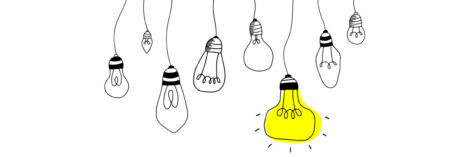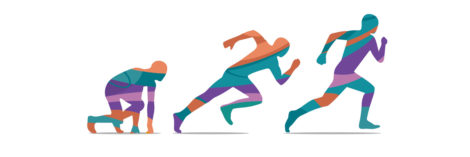Fairly Made is a company with a mission to improve the social and environmental impact of the textile industry.
To do so, Green Tech has developed two solutions:
- Fairly Made Impact: a SaaS platform that enables fashion brands to make progress on the traceability of their supply chain.
- Impact measurement: through the criteria of social, environmental, and sustainable impact, and the recyclability of clothing
From her meeting with Camille Le Gal, co-founder of Fairly Made, to upcoming projects, discover in this podcast the entrepreneurial journey of Laure Betsch.
To be kept in mind
Between the raw material and the finished product, we can have up to 14 different factories.
Before entering the heart of the matter, it is interesting to know that currently, fashion represents the second most polluting industry.
Moreover, the textile industry sector is very opaque due to the number of actors and the necessary transformation steps on a single garment.
Moreover, the large number of traders makes it difficult for brands to trace the production chain.
Summary
- Chapter 1: the entrepreneurial experience in 1 figure
- Chapter 2: the genesis of the business idea
- Chapter 3: the confirmation of the business idea
- Chapter 4: getting started
- Chapter 5: take off
- Chapter 6: the future
- IntoTheMinds podcasts
The marketing idea to be retained absolutely
Nowadays, transparency is becoming increasingly important in the field of consumer behavior. The creation of traceable chains is a relevant marketing idea. For Laure and Camille, this has been characterized by getting as close as possible to the fiber. This is how Fairly Made started in India, the first organic cotton-producing country globally.
Chapter 1: Fairly Made in 1 key figure
2 million.
This is the turnover realized in 2021.
To realize such a figure, Laure explains that it was necessary to convince the brands and do follow-up work in garment production and impact measurement.
This work was made possible thanks to her commitment, a passionate and invested team of 18 employees that she considers being the key to success.
Chapter 2: the genesis of the business idea
The idea of Fairly Made was born in Hong Kong, where Laure and Camille were for professional reasons. At the time, Laure was working at & Other Stories, a brand of the H&M group, while Camille was working on opening a communication agency.
We ourselves, working in these huge companies, had no answers. We thought there was a real gap.
As with many start-ups, the idea for the company was born from personal observation.
Chapter 3: confirmation of the business idea
The idea was supported by a favorable environment: ecological transition, eco-responsibility, and regulations.
Regulations are moving toward Fairly Made with a duty of care that obliges companies with more than 5,000 employees to learn about the risks and anticipate them since the 2013 tragedy in Bangladesh. These regulations are set to become more critical for companies and address those with smaller workforces.
Around 2024, we will have to put an environmental rating on clothing.
These regulations will undoubtedly become stricter in the coming years with the appearance of a score comparable to that displayed on food (nutriscore).
Chapter 4: getting started
After leaving their jobs, Laure and Camille went out into the field to Hong Kong, China, India, and Europe to understand the production chain’s different links and discover what certifications were used. To do this, they had to visit no less than 200 factories. The idea was to rely on the know-how of certifiers, who were already going into the field and handing out certificates.
Production and canvassing thus began. As soon as the canvassing phase started, Laure knew that the brands had a CSR budget.
Fairly Made then started to work on life cycle analysis, which allows, after collecting information from suppliers, to determine the environmental impact.
Their first customer was none other than…her grandmother! The latter has a ready-to-wear boutique and was thus able to pass on her knowledge to Laure about clothes shopping. Fairly Made quickly signed a contract with Les Galeries Lafayette.
Chapter 5: take off
The take-off took place in 2020, during which the number of customers doubled. Covid contributed to this by accelerating awareness.
Chapter 6: the future
Fairly Made hopes to grow and recruit about 50 employees within 5 years.
Geographic expansion into the most mature cities in Europe is also on the agenda to deploy their services there.
With the increasing implementation of CSR standards, the future looks bright for Fairly Made. In the future, the use of organic materials, recycled materials, and the display of environmental impact will be a prerequisite. Rising raw material prices and inflation could also help support the second-hand market and encourage brands to commit to more responsible processes.
A podcast to help you develop your start-up
The “Entrepreneurship and Marketing” podcast traces the different stages in the life of a promising start-up. By identifying the critical elements of success at each phase of the start-up’s development, we help you find solutions for your company.
The podcast is divided into chapters of 4 to 6 minutes. Each chapter is dedicated to a specific theme or development phase. You can listen to the entire podcast or choose to listen to only a part of it by directly selecting the one that interests you the most. You can also find the video version of the interview on our YouTube channel.
Illustration images: shutterstock
Posted in Entrepreneurship.






